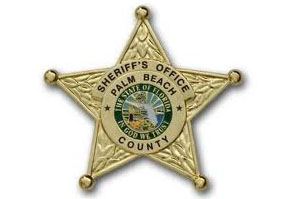Wellington is considering speed signs on multi-modal pathways heavily traveled by golf carts after a law-enforcement sweep resulted in 66 written warnings and 15 citations, Wellington officials said this week.
The point of “Operation Fairway” was to remind residents of the rules that Wellington put in place even as it has moved in recent years to accommodate such trendy transportation outside golf courses, Village Manager Jim Barnes said in an interview Tuesday, May 13.
“We needed to make sure the community understood the rules and regulations we have in place, for their safety, given the increased popularity of golf carts throughout the community,” Barnes said.
It seems clear enough that people do not always know what the rules are. In at least 35 cases during Operation Fairway, golf cart drivers initiated encounters with Palm Beach County Sheriff’s Office personnel to inquire, records show.
The operation from April 21 to May 2 concentrated on areas including Greenview Shores Blvd., Binks Forest Drive, Bent Creek Road, Paddock Drive, Big Blue Trace, and shopping plazas such as the Wellington Marketplace and Courtyard Shops.
Enforcement tended to focus on warnings, though 15 citations are mentioned in records.
The most common reasons for deputies to make stops included failure to obey stop signs on multi-modal paths, exceeding 15 mph speed limits on multi-modal paths, or 25 mph on designated roads, operating on unauthorized roadways and operators not carrying identification.
A possible next step is putting 15 mph speed signs on the wider multi-use paths carts are allowed to use, Barnes said. These might go beneath small stop signs already in place to warn travelers they must stop at intersections with roads, he said.
The speed limit for golf carts is 15 mph on multi-modal paths, and 25 mph on designated roads they can use, which are typically smaller roads within neighborhoods and not major thoroughfares with speed limits higher than 25 mph, according to village officials. Golf carts are allowed to move across some larger roads in approved crossing areas, with a few exceptions, such as State Road 7.
Golf carts are allowed on multi-modal paths, generally at least eight feet wide, but not on narrower sidewalks that might run within neighborhoods, or even along some major roads, such as portions of Forest Hill Blvd., officials noted.
What about parking lots? Golf carts are not allowed in school district parking lots or in student drop-off and pick-up lines, Barnes said. Exceptions would include maintenance or security carts used by district employees.
Carts are generally allowed in private parking lots, such as in shopping centers, unless prohibited by signs owners put up there, he said.
According to a village web site, those driving a golf cart must be 18 years old, or, for those under that age, have valid credentials to operate a motor vehicle.
There aren’t supposed to be more people on a cart than it has seats, with some leeway for holding a younger child in someone’s lap.
Golf carts may be legally operated only between sunrise and sunset, unless the cart is equipped with nighttime safety equipment, which includes headlights, brake lights, turn signals and a windshield.
Regulating all this can be challenging, as golf carts don’t necessarily come out of the factory with a speedometer, for example, though they can be souped up to generate a little more power or carry more equipment.
Wellington approved a golf cart ordinance that took effect in March 2022, with occasional tweaks since.
A village web site on golf carts includes warnings against reckless behavior.
“Any person operating a golf cart upon a designated multi-modal pathway must yield the right-of-way, by slowing down, stopping or pulling off the pathway, if need be, to pedestrians, bicyclists, horses and all other travelers at all times,” the site explains. “Failure to yield or ‘bulldozing’ pedestrians or bicyclists off the pathway will not be tolerated.”
For more information, visit www.wellingtonfl.gov/1059/golf-cart-guidelines.








